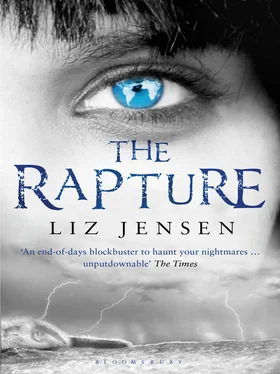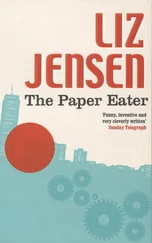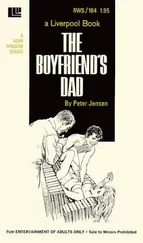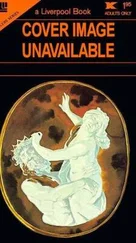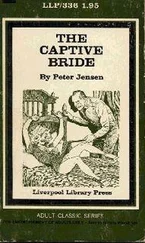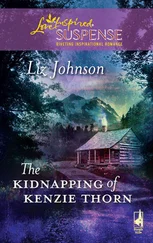‘I’m recontacting people about Hong Kong and Samoa. But I’m not hopeful. The people I tell either think I’m nuts, or they’re jealous because they reckon I’ve invented a new machine that can detect early warning signals.’
Some days after the cyclone has wreaked its worst, killing more than three hundred in Mumbai, I drive to Frazer Melville’s house.
He opens the door in silence. He has lost weight and his clothes hang loosely. He doesn’t bend to kiss me, and there’s no welcoming touch. I can feel he’s withdrawing from me, and perhaps even keeping something crucial to himself. BBC World is on. As I had already heard on the news, much of Hong Kong island is on fire. A gas blast caused a high-rise to topple, killing eighty. Elsewhere hundreds more are dead, after lightning struck the boat settlements and the resulting blaze, fanned by tropical breezes, flared upward into the tinder-dry woodland of Peak District. It’s evening over there, and Hong Kong seen from the air is a splash of orange in the South China Sea. Across the water in Kowloon, more fires are raging, triggered by gas blasts.
‘You have to tell me what’s going on,’ I say eventually, nodding at the screen. ‘Apart from this.’
‘I had a call from my head of department yesterday,’ he says. ‘He’s not happy about the fact I’ve been making scientifically unfounded statements.’
‘A few e-mails to colleagues?’
‘It’s an abuse of my university status, according to him. He’s old school.’
‘So what’s the punishment?’
‘Oh, just the usual freezing-out, I imagine. But I’m not staying to find out. I told him I wanted a six-week sabbatical.’
‘He agreed to it?’
‘With insulting alacrity,’ his smile is bleak. ‘No one will speak to me, not even off the record, about these fires,’ he says, waving at the TV. ‘I’m persona non grata.’
‘And Harish Modak?’ I ask. There’s an uneasy silence, which I take as a no. ‘And the web?’
‘Oh, it’s spreading like bird flu.’ He doesn’t need to say that this is more a curse than a blessing.
‘So sooner or later the science and news journalists will pick it up, then.’ We let this thought hang for a moment. ‘So what next?’
‘We go to London and make the people who can make things happen listen to us.’
‘Campaigners?’ I ask.
He shrugs. ‘A last resort is a last resort.’
‘But how will their reaction be any different?’
He reaches for a bottle of whisky and sighs heavily. ‘I don’t know.’ His face succumbs to gravity. ‘Now do you want a drink? I’m having one.’ He sloshes himself a glass, swallows it down in one gulp and then pours another.
The next morning is grey, and the weather has finally cooled a little. In the fields and hedgerows and on the industry-sponsored roundabouts, the reds and oranges and dark greens stand out like heraldic flags. It’s effectively the second autumn of the year. The first shrivelled the leaves on the branches and sun-blasted the fruit to ripeness back in May. Now more leaves are falling, horse chestnuts are splitting open, and the hedgerows are studded with the ripening red of rosehips, deadly nightshade and hawthorn. I’m used to driving alone, my wheelchair folded on the passenger seat, and I’m finding it hard to adjust to having a person next to me instead. Particularly one as weary-looking and hung over as Frazer Melville is today. Last night I could see he was drinking too much but I didn’t steer him away from it any more than I allowed myself to signal a desire for the physical intimacy I was aching for. Was I respecting his space, or just being a coward? He’d seemed almost oblivious to my presence, and I was too insecure to initiate anything. In any case, I rationalised, his bedroom is upstairs.
But now, the fact that we did not make love has spawned an unease, adding invisibly to the conflicted issue which has dominated the first twenty minutes of our journey: how much should we reveal about Bethany? I have insisted that her anonymity remain sacrosanct. Plus, I’ve argued, revealing our source as the inmate of a mental institution will hardly credit our case. He acknowledges this, but declares himself hamstrung: if he cannot refer to Bethany’s insights into turbulence as a product of ECT, then he can offer no scientific evidence to back up his theory about sensitivity to geological and meteorological vibrations. Finally, we reach a fragile accord, but the subsequent wordlessness of our journey up to London bears witness to our misery and stress. After all that’s happened, there suddenly doesn’t seem much more to say. The bottom line, as he has pointed out repeatedly, is that we have nothing left to lose. And therefore no choice, following our snub from Harish Modak, but to plead our case to environmental pressure organisations unrelated to the Planetarians. Frazer Melville, BAYMA, PhD and various other acronymic suffixes, has effectively lost his job, and I am on the verge of losing mine. If his silence represents optimism about our current mission, I wish I could share it, and be blessed with some inkling as to what ‘the Tribulation’ might actually involve beyond some vague notion of floods and locust-plagues. A nuclear accident, perhaps?
On that cheerful mental note, we enter the capital.
Saving the world from ecological disaster is big, slick business. The organisation’s funding engine may be fuelled by mass col- lective guilt, but its public face is as confident and forward-thinking as the building that houses it, from its solar-panelled façades and discreet roof-windmills to the impressive collection of donated artists’ work in the lobby. I’m struck by the scale of the operation, the corporate competence of the administrative machine. Money and conviction make for a potent mix. In the waiting area, dominated by a TV wall showing highlights of public campaigns, we are offered lattes. Ten minutes later we are ushered up to the tenth floor, from where the erratic cubist panorama of London’s skyline is on display beneath a thickening lid of cloud. I take in the drab municipal greys, interrupted by green swathes of park, and the landmarks I remember my father pointing out to me on our outing here together six years ago, when his brain and my legs still functioned, in what proved a last, unintended family farewell to the city: the Swiss Re building, the Post Office Tower, the great wheel of the Eye, Nelson’s Column and St Paul’s. In between, the snaking lines of red buses. We rode on one that day. Upstairs. We talked and talked.
We sat upstairs.
It’s clear from the respectful greeting given to Frazer Melville by the chief ecologist Karla Fitzgerald and her team, that my physicist’s name carries a certain cachet.
‘We came to see you in person because this is an unusual situation,’ Frazer Melville begins after he has settled on the sofa and introduced me simply as ‘Gabrielle Fox, a friend who shares my concern’. He’s nervous. Can Karla Fitzgerald sense it too? She smiles easily, but she’s business-like. She apologises for not being able to spare us more than ten minutes: she has another meeting at eleven. We have discussed how to pitch our story, and where to begin.
‘The Istanbul earthquake was very accurately foreseen by someone who we have reason to believe has access to a very specialist predictive system,’ Frazer Melville’s tone is professional, but I can see Karla Fitzgerald’s instant, quiet shock. ‘The same system enabled this individual to pinpoint the date of the hurricane in Rio some weeks in advance,’ he presses on. There are photographs on her walls of children. Karla Fitzgerald’s own, when young perhaps. No: grandchildren. ‘The same source is now speculating—’
But Karla Fitzgerald has stood up abruptly, her hand raised in an emergency stop gesture. Abandoning her desk, she comes across and settles next to Frazer Melville on the sofa. My heart plummets.
Читать дальше
